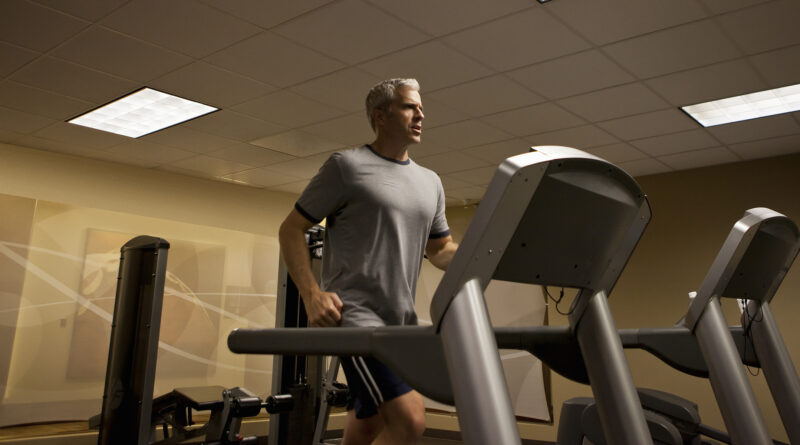Do Guys Burn More Calories Than Females? The Answer Might Surprise You!
Many people assume that guys burn more calories than females in the same activity because guys tend to be larger and stronger. But that assumption doesn’t tell the whole story. Recent research suggests that some guys may actually burn fewer calories than their female counterparts in everyday activities like walking, talking, and eating! Here’s why the answer might surprise you…and how it impacts your weight loss goals!
5 Myths About Men and Calorie Counting
1. All men have faster metabolisms than women.
2. Men need more calories than women because they’re bigger.
3. Muscle burns more calories than fat, so men burn more calories than women.
4. Males are less likely to become obese than females.
5. If a man and a woman eat the same number of calories, the man will lose weight while the woman will gain weight
Incorrect. As it turns out, there’s really no difference between men and women in their caloric needs to maintain a healthy weight. In fact, research has found that active women have higher metabolic rates than men with comparable activity levels; thus, even if a man and woman both burn 1,600 calories daily through exercise, they will not necessarily weigh exactly the same amount at any given time—and they might well be burning different amounts of calories when they’re just sitting around doing nothing.
Does Gender Matter When Considering Total Energy Expenditure?
The number of calories that you burn in a day is called your TDEE, and is influenced by a variety of factors. Your body size, composition, and activity level all play a role in how many calories you burn each day. Surprisingly, though, gender doesn’t seem to make a significant difference. In fact, according to one study published in the Journal of Clinical Endocrinology & Metabolism, men actually burn more calories than women while doing the same amount of exercise. But it’s not just men who are burning more than women; men and women both burn more than those who are inactive. Another study found that after controlling for body weight, there was no significant difference between the two genders when it came to TDEE.
Gender Differences in the Timing of Food Intake?
While the old saying goes the way to a man’s heart is through his stomach, it turns out that may not be entirely true. In fact, a new study suggests that men and women may have different eating patterns, with men tending to eat more often throughout the day than women. Researchers are now investigating whether this could account for the difference in metabolism between genders. Women tend to burn less calories because they store them as fat, whereas men don’t store fat as easily so they need more calories to maintain their weight. However, no scientific studies back up these theories, but that doesn’t mean the idea is totally implausible. It’s possible there’s something about gender differences in hormone levels or other physiological factors that affect how quickly food leaves the body. Regardless of why this is happening, people should still pay attention to what types of foods they’re consuming to stay healthy and get enough nutrition for themselves and their family members.
How Important Are Gender Differences in Appetite Control Mechanisms?
There are a variety of factors that contribute to total energy expenditure, including:
-Basal metabolic rate (BMR): The BMR is how many calories your body burns to keep you alive. Depending on a person’s age, weight, height, and gender, this figure can change based on physical activity level. Obviously, the more active you are, the more calories you’ll burn. But there’s more to it than that. Things like muscle mass and genetics can also play a role in how many calories you burn during physical activity.
-Non-exercise activity thermogenesis (NEAT): This is the energy you expend doing things that aren’t exercise, like fidgeting or walking around.
-Thermic effect of food (TEF): Some foods require more work from your digestive system, which means they end up burning more calories for you.
-Sleep: A person who doesn’t get enough sleep will often have an increased appetite, which means they’re likely to consume more food than someone who slept well.
The bottom line is that while there are some differences between men and women when it comes to their appetites, no one is 100% sure what makes them tick.
What Determines Men’s Total Energy Expenditure, Then?
Factors affecting the amount of calories men burn in a day are that they have more muscle mass than women. It means they have higher levels of testosterone, which builds and maintains muscle tissue. Also, men have more body fat than women on average. This refers to your muscles, bones, organs, and fluids which make up the parts of your body that don’t contain fat. Considering men possess more muscle and less fat, they generally have a greater lean body mass. Men also happen to be taller than women, which also affects how much energy they expend.
What about Weight Gain or Loss Over Time? Is This Sex-Specific Too?
It’s a common belief that men burn more calories than women. After all, they have more muscle mass and less body fat, so they must need more energy, right? Well, it turns out that the answer isn’t so simple. Although men do have a higher metabolism, they also tend to eat more calories. So, do guys burn more calories than females? The answer is…it depends! The truth is that there are factors at play when determining how many calories you should be eating, which means weight gain or loss over time can be sex-specific too. For example, if you’re very active and male but still pack on pounds due to overeating or eating unhealthy foods then you may want to work with a dietician who can help you adjust your calorie intake.
Is There Such a Thing as an Average Guy’s Diet, Then?
Let’s face it, most of us don’t think about our diets all that much. We just eat what sounds good at the time, or what’s convenient. But if you want to get down to the nitty-gritty of whether men or women need more calories, you have to consider the average diet for each sex. And that’s where things start to get interesting… Men are typically larger than women, which means they have a higher basal metabolic rate and burn more calories. It’s not an exact science by any means, but on average, guys tend to need around 2200-2500 kcal a day (or about 5500-6000 kJ), while females only need 2000-2200 kcal (about 4700 kJ). Plus, since testosterone increases muscle mass and reduces fat tissue development in males, their resting metabolic rate is also higher than that of females.
Summary
While it’s true that men generally have more muscle mass than women, and therefore burn more calories at rest, there are a lot of other factors that come into play when it comes to calorie burning. Factors like age, activity level, and even genetics can all affect how many calories someone burns in a day. So, the simple answer to the question is: it depends! A person’s age plays a major role in how many calories they need to consume on average. The older you get, the less active you are and the lower your metabolism is; this means you need fewer calories per day as you get older because your body does not need as much energy as it did when you were younger.




